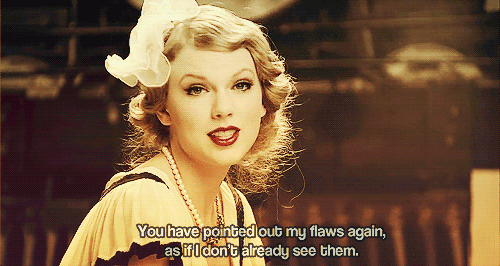As Millennials, We Are The Loneliest People
From one lonely person to another, let's smash this stigma.
If you're a millennial and you're feeling extremely lonely, you certainly aren't alone in that feeling. We are often far too afraid to talk about it because society puts such a stigma on this condition. But I am here to tell you that we, as millennials, are the loneliest age group. so let's smash the stigma and acknowledge this feeling once and for all.
As a (nearly) 20-year-old, I never imagined at this age I would think about loneliness. I would always equate that word with elderly people who are away from all of their loved ones, enduring the sullen monotony of a nursing home. Of course, throughout school, I would feel lonely on occasion--the one stretch of the summer when all of my friends were away while I was home, the period of time I was grieving the loss of a loved one, or even particular days when I was just sadder than usual.
But the loneliness faded away after a brief period of healing. I knew my friends would come back and life would return to normal eventually. It was a mood that was sucky but it was only that: a mood.
However, these past two years have been the loneliest years of my life.
Chronic loneliness is different from the loneliness I've ever experienced before. I didn't think living a couple of hours away from home, living in a community of 40,000 people, starting an independent life would leave me so empty, experiencing a far greater level of emotional pain. I kept myself busy in the community, joining various clubs and programs around campus, attending events, and trying to reach out to others, but it seemed like I never belonged anywhere— in my college or in the greater society.
It didn't take me very long to believe that my life and my hurting were not normal.
A counselor on campus, who was a fully grown adult, was "confused" that I felt this way. I "seemed normal" and normal people have tons of friends in college. People would false empathize with me that they "felt that way when they were adjusting" but I'm fully adjusted and feel no less lonely. I call and text people often but everyone is always "busy," and I have no place in the midst of their crazy lives and other friends. In fact, it's been almost six months since I last hung out with a group of people.
But in fact, what I was feeling wasn't so abnormal after all.
The loneliest generation is not the elderly people who live by themselves without family members by their sides. It's us. We can talk to people every day. Since living away, I've talked to the dining hall staff, cashiers at stores downtown, and the one person who knows all the answers in my information science class, but the quality of the bonds was not what they were at home. They did not instantly make me feel like I had tons of friends. The quality bonds we have lost in this stretch of time, a brief stretch of time where we have to quickly develop friendships.
So how can we end our suffering?
We need to open up about how we're feeling. I was convinced I was the only one who felt this way for the longest time, which worsened the extent of this pain. In fact, our chronic loneliness can damage our health in the same way that smoking 15 cigarettes daily can do. But in order to change our health (and our happiness level for God's sake), we need to make it known that us young people are the lonely ones. And maybe then we can help others in our situation who eat lunch alone, who stay in at night, not by choice, who rarely get calls or texts on their phones.
From one lonely millennial to the rest of them, it is time to combat this feeling for good.

























